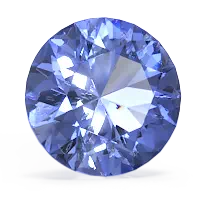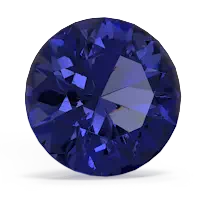

Never more popular, the Tanzanite halo rings feature a beautiful gemstone surrounded by sparkling diamonds. Tanzanite is the new birthstone of December and has a unique purple-blue color. A tanzanite ring is one of the newest fashion trends and is a must for any jewelry collection. Sapphire is the birthstone of September, and one of the most popular gemstones on the jewelry scene today. The deep blue color of a sapphire ring is just right for an evening out.